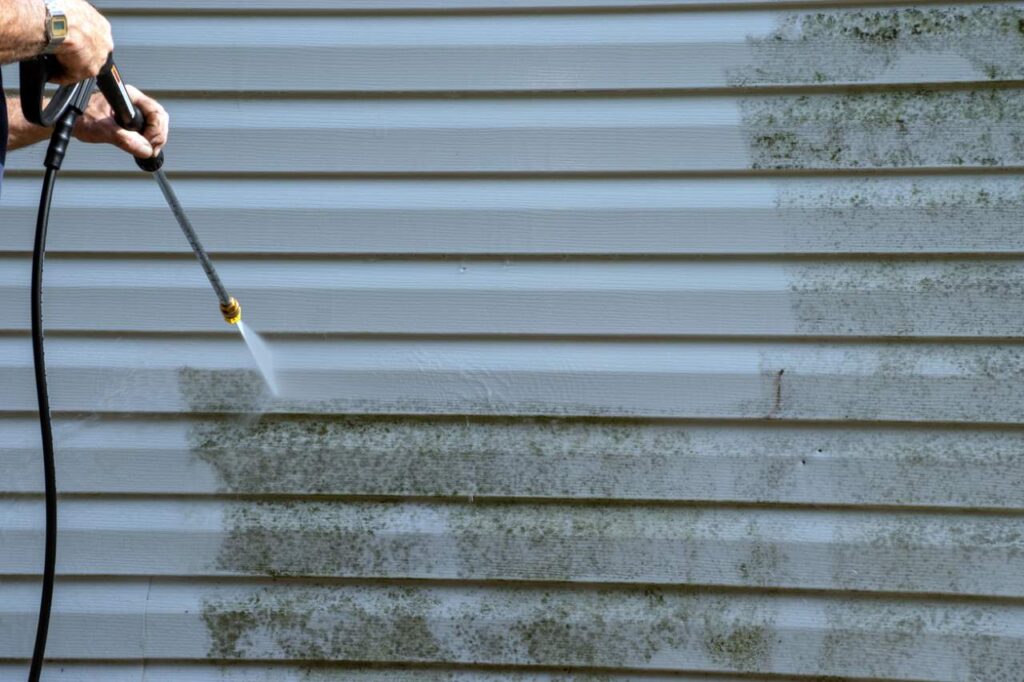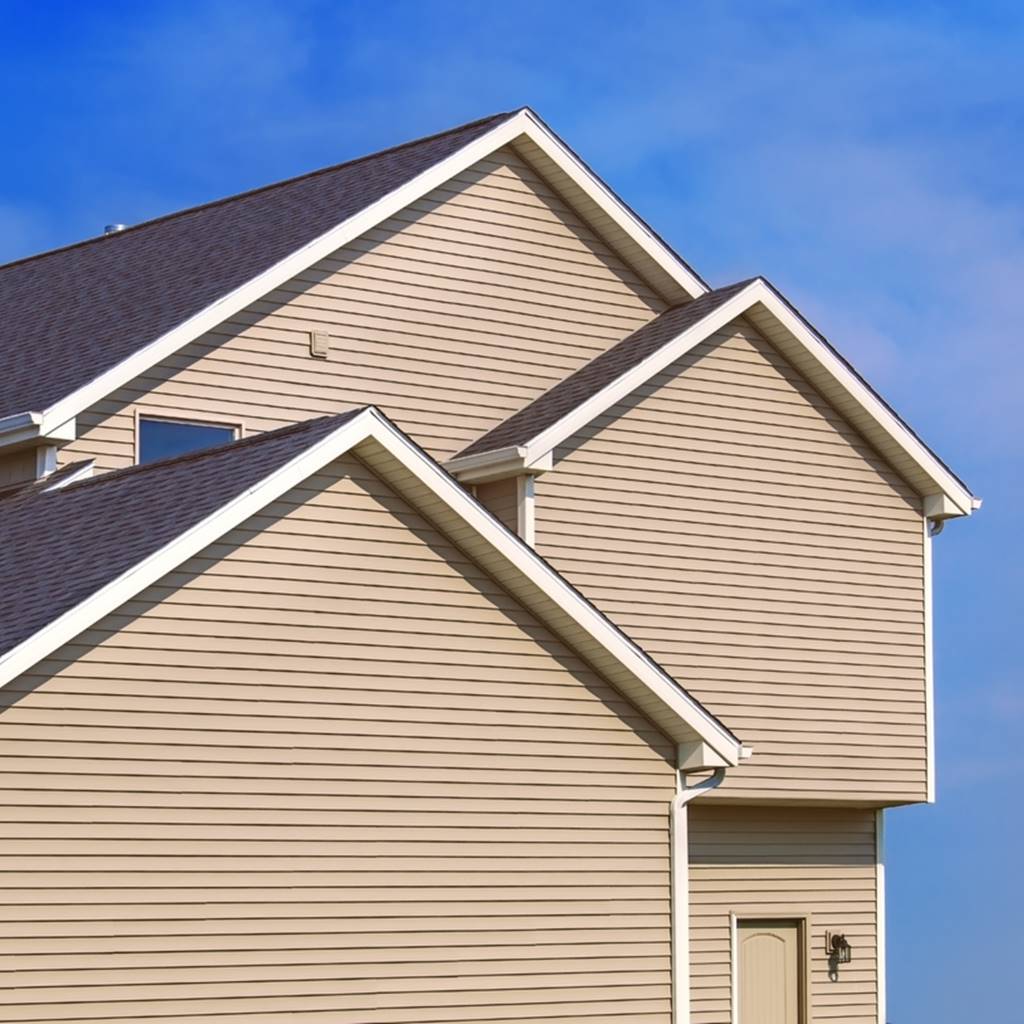Vinyl siding has become a popular choice for homeowners looking to enhance the appearance and durability of their homes, but if you're considering vinyl siding for your property in a state with fluctuating weather, one key question likely comes to mind: "How long does vinyl siding last?" In this comprehensive guide, we're going to take a look at the lifespan of vinyl siding, factors influencing its durability, and offer maintenance tips to keep it looking great for years to come. Let’s dive in!
Vinyl Siding Lifespan
So, what’s the lifespan of vinyl siding? General speaking, vinyl siding is renowned for its longevity, and on average, well-maintained vinyl siding can last anywhere from 20 to 40 years or more. This impressive lifespan is one of the primary reasons why many homeowners opt for vinyl siding when renovating their homes - but, of course, the actual lifespan of your vinyl siding can vary based on several factors.
Factors Affecting Vinyl Siding Longevity
Quality of Installation
Proper installation by experienced professionals is key for longevity; when installed correctly, vinyl siding can resist wear and tear more effectively, extending its lifespan.
Climate and Weather Conditions
Harsh weather conditions, such as extreme heat, cold, or frequent storms, can impact the durability of vinyl siding. However, vinyl is highly resistant to moisture, so it remains ideal for regions with heavy rainfall.
Maintenance
Just like any other aspect of our homes, regular maintenance also plays a significant role in vinyl siding's lifespan. Cleaning it periodically, inspecting for damage regularly, and addressing any issues promptly can help prolong its life.
UV Exposure
While vinyl siding is UV resistant, it is the case that prolonged exposure to direct sunlight can cause fading over time - that said, this is more of a cosmetic issue rather than affecting its structural integrity.
Impact Resistance
Vinyl siding tends to be pretty resilient to minor impacts, but severe impacts can cause damage; avoid activities like hitting the siding with heavy objects or reckless handling of equipment around it.
Signs of Wear and Aging
To ensure your vinyl siding maintains its durability and aesthetic appeal, it's essential to be vigilant about signs of wear and aging. Here are some common signs to watch out for:
- Cracks or Holes: Small cracks or holes can allow moisture to penetrate and can end up leading to further damage, so try to promptly repair any damages you spot as soon as you notice them.
- Fading Color: As mentioned earlier, exposure to UV rays can cause the color of your vinyl siding to fade over time, and although this is more of a cosmetic, superficial concern it can nonetheless affect your home's curb appeal.
- Warping: Vinyl siding can warp under extreme heat, which can affect its appearance. Ensure your siding is properly ventilated to prevent this issue.
- Loose Panels: Strong winds or improper installation can result in loose or detached vinyl panels. Address this issue promptly to prevent further damage
- Mold and Mildew: In humid climates, mold and mildew can develop on the surface of vinyl siding, but regular cleaning can help prevent this problem.
How Does Vinyl Compare with Other Siding Materials?
When comparing vinyl siding to other common siding materials such as wood, aluminum, or fiber cement, vinyl often comes out on top in terms of longevity and low maintenance. While wood siding may require frequent repainting and is susceptible to rot, vinyl siding requires minimal upkeep and resists rot and insect damage.
Additionally, vinyl siding is known for its cost-effectiveness, which is why it remains such an attractive choice for homeowners looking to improve their homes without breaking the bank.
Vinyl Siding Maintenance and Care Tips

So, to maximize the lifespan of your vinyl siding, consider the following maintenance and care tips:
Regular Cleaning
Wash your vinyl siding with a mild detergent and a soft brush or sponge at least once a year to remove dirt, grime, and mold.
Inspect for Damage
Periodically inspect your siding for any signs of damage, and address issues promptly to prevent them from worsening.
Trim Overhanging Trees
Branches that rub against your siding can cause scratches or damage. Trim them to keep your siding in good condition.
Avoid Direct Heat Sources
Keep grills, fire pits, and other heat sources away from vinyl siding to prevent warping or melting.
Consider Professional Inspection
If you're unsure about the condition of your vinyl siding, consider hiring a professional for a thorough inspection and any necessary repairs.
The Bottom Line
All elements considered, vinyl siding has a pretty impressive lifespan when properly installed and maintained. Thanks to its durability, low maintenance requirements, and overall cost-effectiveness, it’s an excellent choice for homeowners looking to improve their home's exterior on a budget. If you're interested in how vinyl siding can increase your home's value, check out our article on improving home's worth with vinyl.
And if you’re looking for vinyl siding in Denver, our team of experts at Rise Renovation is here to help! Whether you’d like a free quote, a consultation or simply have a query, feel free to reach out to us and speak to one of our team members.
FAQs
Can vinyl siding withstand extreme weather conditions?
Yes, vinyl siding is designed to handle a wide range of weather conditions. This is because it’s highly resistant to moisture, making it an excellent choice for regions with heavy rainfall. It can also endure cold winters and hot summers, however, in areas prone to extreme weather events like hurricanes or tornadoes, additional precautions may be necessary, such as reinforcing the siding or opting for thicker vinyl panels.
Is vinyl siding eco-friendly?
Vinyl siding is considered environmentally friendly due to its long lifespan and minimal maintenance requirements; this is most notably becauseI it doesn't require frequent painting or staining, reducing the use of chemicals and resources over time.
